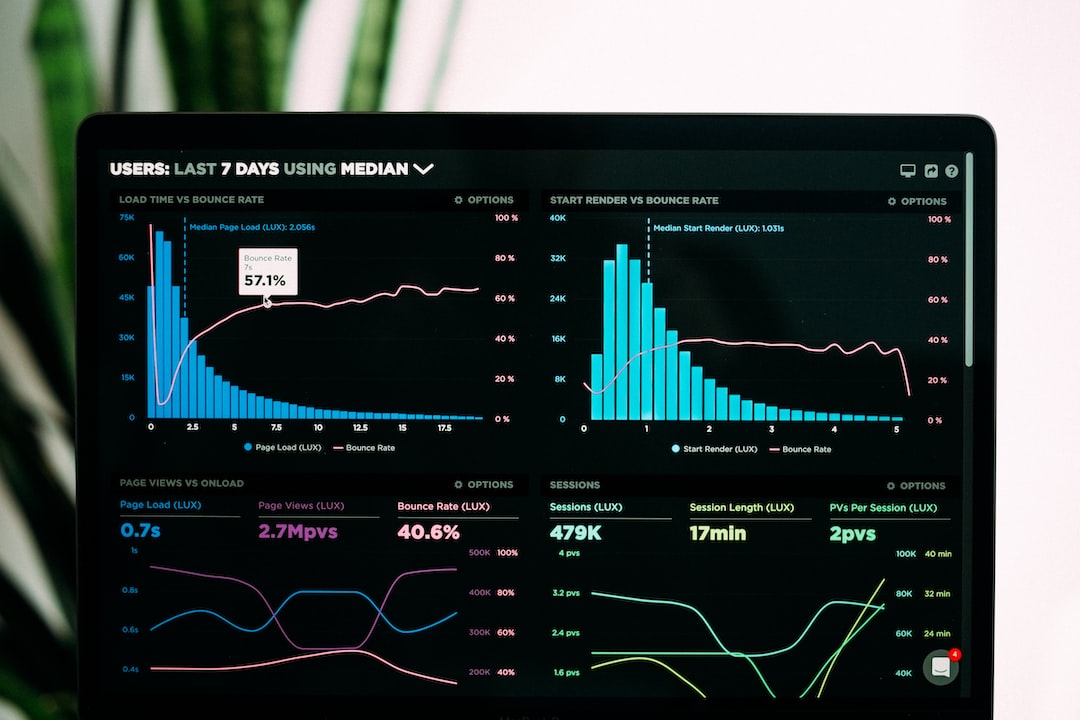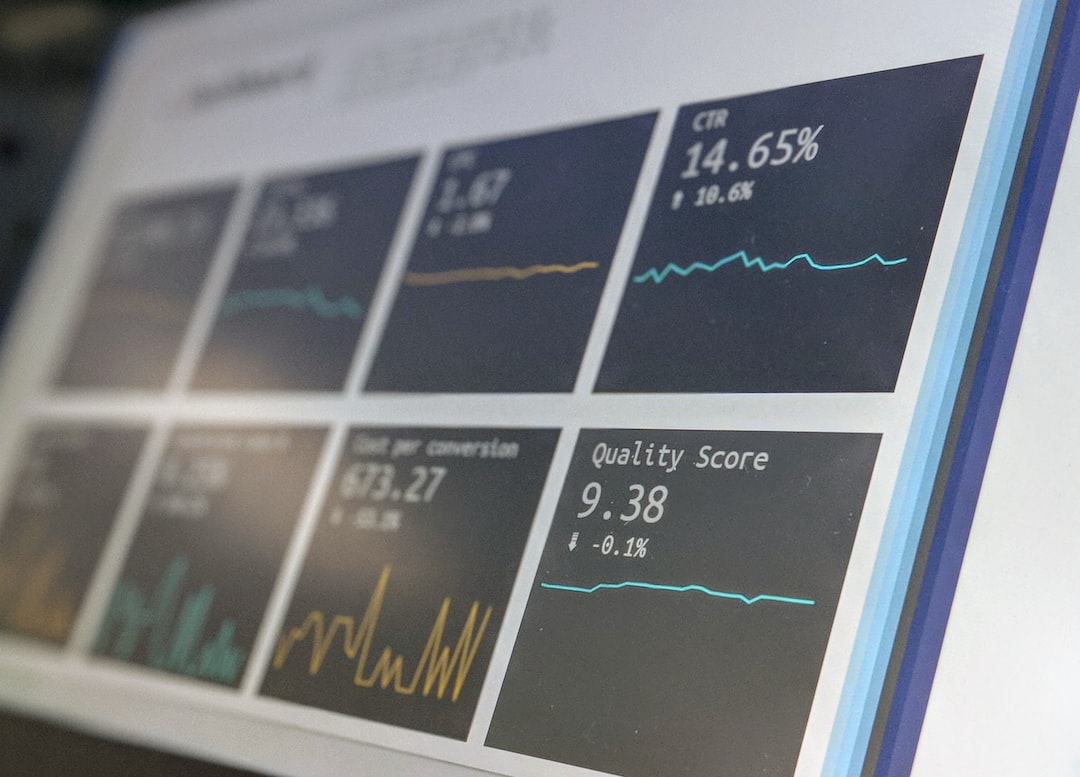
Tales of an Operator
est 1982 | SEO | Digital Marketing | Project Management | Collaboration | Positioning | Context

SEO, AI
The Top SEO Metrics to Track for Improved Performance
2 June 2023
SEO or search engine optimization is an essential digital marketing strategy that helps businesses to rank higher on search engine result pages (SERP) and reach more potential customers. However, to gauge the effectiveness of your SEO strategies, you need to track various SEO metrics continually. In this article, we will discuss the top SEO metrics that you should track to improve your website's performance and achieve higher rankings on SERPs.
Introduction
SEO metrics refer to the quantifiable values that measure the success of an SEO strategy. These metrics provide valuable insights into your website's traffic, user behavior, and overall performance. By tracking SEO metrics, you can identify areas of improvement, optimize your website for better performance, and achieve your business goals.
Organic Traffic
Organic traffic refers to the number of visitors that reach your website through search engine results pages (SERPs) without paid advertising. It is one of the most critical SEO metrics to track as it indicates how well your website is ranking on search engines. To improve your organic traffic, you need to optimize your website's content and technical aspects, such as metadata, headings, and internal linking structure.
Keyword Rankings
Keyword rankings refer to the position of your website's pages in the SERPs for specific search queries or keywords. By tracking your keyword rankings, you can assess the effectiveness of your keyword strategy, identify opportunities to improve your ranking positions and outrank your competitors.
Click-Through Rates (CTR)
CTR is the percentage of clicks that your website receives per impression on the SERPs. A high CTR indicates that your website's content and meta descriptions are relevant and compelling to searchers. To improve your CTR, you need to optimize your meta descriptions, titles, and headings to entice users to click on your website.
Bounce Rate
Bounce rate refers to the percentage of users who leave your website after viewing only one page. A high bounce rate indicates that your website's content or user experience is not engaging enough for users to explore further. To reduce your bounce rate, you need to optimize your website's content, design, and navigation to provide a seamless and relevant user experience.
Time on Page
Time on page measures the average duration that users spend on a particular page on your website. It indicates how engaging and valuable your content is to users. To increase your time on page, you need to create high-quality, informative, and engaging content that meets users' search intent.
Conversion Rate
Conversion rate measures the percentage of visitors who complete a desired action on your website, such as making a purchase or filling out a form. It indicates how effective your website is at converting visitors into customers. To improve your conversion rate, you need to optimize your website's design, content, and user experience to provide a clear and easy conversion path for visitors.
Pages per Session
Pages per session measure the average number of pages that users visit on your website per session. It indicates how engaging and relevant your website's content is to users. To increase your pages per session, you need to provide relevant and informative content that entices users to explore further.
Backlinks
Backlinks refer to the links from other websites that point to your website. Backlinks are a critical SEO metric as they indicate the authority and relevance of your website. High-quality backlinks from reputable websites can significantly boost your website's ranking on search engines. To increase your backlinks, you need to create high-quality content that other websites would want to link to and engage in link-building activities such as guest blogging and outreach.
Domain Authority
Domain authority is a search engine ranking score that predicts how well a website will rank on search engines. It is based on various factors such as the quality and quantity of backlinks, the age and content of the website, and the website's overall performance. By tracking your domain authority, you can assess your website's overall SEO performance and identify areas of improvement.
Mobile Responsiveness
Mobile responsiveness refers to how well your website performs on mobile devices such as smartphones and tablets. With the increasing use of mobile devices, it's crucial to ensure that your website is mobile-friendly, fast, and easy to navigate on smaller screens. By tracking your website's mobile responsiveness, you can optimize your website's design and user experience for mobile users.
Page Load Time
Page load time measures how quickly your website's pages load for users. A slow page load time can negatively impact your website's user experience and ranking on search engines. To improve your page load time, you need to optimize your website's design, content, and technical aspects such as image sizes and server response times.
Unique Visitors
Unique visitors refer to the number of individual users who visit your website within a specific timeframe. It indicates how many people are interested in your website's content and products. By tracking your unique visitors, you can assess your website's overall traffic and user engagement.
Social Media Engagement
Social media engagement measures how well your website's content performs on social media platforms such as Facebook, Twitter, and LinkedIn. It indicates how well your website's content resonates with your target audience and how well your social media strategy is performing. To increase your social media engagement, you need to create high-quality, shareable content, engage with your followers, and use social media analytics to optimize your strategy.
Conclusion
Tracking the right SEO metrics is crucial for improving your website's performance and achieving higher rankings on search engines. By tracking metrics such as organic traffic, keyword rankings, click-through rates, bounce rate, time on page, conversion rate, pages per session, backlinks, domain authority, mobile responsiveness, page load time, unique visitors, and social media engagement, you can optimize your website for better user experience, engagement, and conversion.
FAQs
What is organic traffic?
Organic traffic refers to the number of visitors that reach your website through search engine results pages (SERPs) without paid advertising.
How do I improve my website's conversion rate?
To improve your website's conversion rate, you need to optimize your website's design, content, and user experience to provide a clear and easy conversion path for visitors.
How do I increase my backlinks?
To increase your backlinks, you need to create high-quality content that other websites would want to link to and engage in link-building activities such as guest blogging and outreach.
What is domain authority?
Domain authority is a search engine ranking score that predicts how well a website will rank on search engines. It is based on various factors such as the quality and quantity of backlinks, the age and content of the website, and the website's overall performance.
How do I improve my website's mobile responsiveness?
To improve your website's mobile responsiveness, you need to optimize your website's design and user experience for mobile users, ensure that your website is fast and easy to navigate on smaller screens.
Access All of My Amazing Prompts:
Share this post on:
RECENT POST
-
1 June 2023
-
31 May 2023
-
30 May 2023
CATEGORY
-
SEO
-
ONLINE ADS
-
MARKETPLACE POSITIONING
-
PROJECT MANAGEMENT
-
FRAMEWORKS
-
TEAM COLLABORATION
-
KANBAN
-
IMPLEMENTING AGILE IN TEAMS
-
MARKETING STRATEGIES
-
CASE STUDIES: EMAIL
-
CASE STUDIES: SEO
-
CASE STUDIES: SOCIAL MEDIA
-
CASE STUDIES: ONLINE ADS
-
CASE STUDIES: ONLINE SCHEDULING
-
-

Garrett Vatcher
Principal Consultant | Founder
Experience matters when it comes to SEO success. With over $1B in attributed revenue and 10,000+ online scheduled appointments, Garrett Vatcher, Principal Consultant at SEO Marketing Consultant, has the expertise to help your business thrive."
FEATURED ARTICLE
18 May 2023
17 May 2023
Writing Killer Seo Content With Chatgpt
Chatgpt And How It Can Help With Seo
Boost Seo With Chatgpt Chatbot
Game With Semantic Seo And Chatgpt
Writing Killer Seo Content With Chatgpt
Chatgpt Local Seo Tools
Seo With Chatgpt Poweful Tools
Using Automated Seo For Your Website
Why Mobile Optimization Is Essential Seo
How Content Marketing And Seo Works
Chatgpt The Next Generation Language
The Future Of Ai Technology Basics
How Ai Changes The Way We Learn
The Lates Ai Research And Breakthroughs
The Ultimate Seo Checklist For 2023
The Importance Of Title Tags For Seo
Complete Guide To Link Building For Seo
Optimize Your Product For Ecommerce Seo
Machine Learning A Beginners Guide
Chatgpt Competitor Analysis Tools
Website For Voice Search With Chatgpt
Revolutionizing Seo Boosting Rangkings
How Machine Learning And Ai Algorithms
How Website Speed Impacts Your Seo
Tips On Boosting Organic Search Traffic
What Makes Chatgpt Different From Gpt3
How To Built Chatbot With Chatgpt
The Evolution Of Ai Technology
What Is Seo And How Does It Works
Beginners Guide To Google Analytics Seo
How To Write Meta Descriptions For Seo
How To Boost Seo With Guest Blogging
Power Of User Generated Ecommerce Seo
The Ai Technology Behind Voice Assistant
Seo Potential Chatgpt Content
Seo Chatgpt Backlink Analysis Tools
Ai Tools To Help You Rank Higher
Role Of Nlp In Optimizing Seo Content
Top Seo Metrics To Track Performance
Importance Of Backlink Analysis For Seo
What Is A Language Model
Top 10 Ai Applications For Your Business
Ai Finance Improving Accuracy Efficiency
Seo For Beginners A Comprehensive Guide
The Top Keyword Research Tools For Seo
Ultimate Guide To Header Tags For Seo
Ultimate Guide To Local Keyword Seo
Mobile Friendly Websites For Seo
Chatgpt And How It Can Help With Seo
Writing Killer Seo Content With Chatgpt
Chatgpt And How It Can Help With Seo
Boost Seo With Chatgpt Chatbot
Game With Semantic Seo And Chatgpt
Writing Killer Seo Content With Chatgpt
Chatgpt Local Seo Tools
Seo With Chatgpt Poweful Tools
Using Automated Seo For Your Website
Why Mobile Optimization Is Essential Seo
How Content Marketing And Seo Works
Chatgpt The Next Generation Language
The Future Of Ai Technology Basics
How Ai Changes The Way We Learn
The Lates Ai Research And Breakthroughs
The Ultimate Seo Checklist For 2023
The Importance Of Title Tags For Seo
Complete Guide To Link Building For Seo
Optimize Your Product For Ecommerce Seo
Machine Learning A Beginners Guide
Chatgpt Competitor Analysis Tools
Website For Voice Search With Chatgpt
Revolutionizing Seo Boosting Rangkings
How Machine Learning And Ai Algorithms
How Website Speed Impacts Your Seo
Tips On Boosting Organic Search Traffic
What Makes Chatgpt Different From Gpt3
How To Built Chatbot With Chatgpt
The Evolution Of Ai Technology
What Is Seo And How Does It Works
Beginners Guide To Google Analytics Seo
How To Write Meta Descriptions For Seo
How To Boost Seo With Guest Blogging
Power Of User Generated Ecommerce Seo
The Ai Technology Behind Voice Assistant
Seo Potential Chatgpt Content
Seo Chatgpt Backlink Analysis Tools
Ai Tools To Help You Rank Higher
Role Of Nlp In Optimizing Seo Content
Top Seo Metrics To Track Performance
Importance Of Backlink Analysis For Seo
What Is A Language Model
Top 10 Ai Applications For Your Business
Ai Finance Improving Accuracy Efficiency
Seo For Beginners A Comprehensive Guide
The Top Keyword Research Tools For Seo
Ultimate Guide To Header Tags For Seo
Ultimate Guide To Local Keyword Seo
Mobile Friendly Websites For Seo



